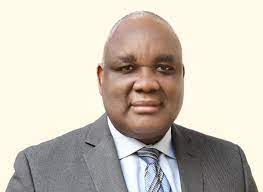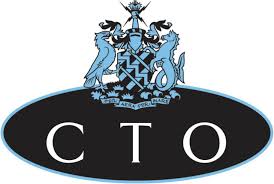In continuation of the drama and counter claims trailing the final fight for the soul of Etisalat Nigeria, the company claimed on Thursday that about 42 per cent (about $504 million) of the original loan package of $1.2 billion (about N377.4 billion) from a consortium of Nigerian banks has since been repaid.
However, Exotix Capital report in London on Thursday said the impact of the loan repayment default on the 13 banks will be minimal and ruled out chances of the company meeting up with today’s deadline on repayment.
Though some banks officials’ contacted yesterday evening on phone declined comments on confirmation of receiving any part payments, their body language indicate frustrations and lack of synergy between them and the company.
Etisalat Nigeria’s Vice President, Regulatory & Corporate Affairs, Ibrahim Dikko, had in a statement denied news reports that the company was being investigated by the Economic and Financial Crimes Commission (EFCC).
He said “Etisalat wishes to categorically affirm for the avoidance of doubt that the reports are patently false and most unfortunate considering the damage such misleading information can have not only on our business, but indeed on the telecommunications industry and the country as a whole”.
According to him, the value of the loan was $1.2 billion, and not $1.7 billion and that Etisalat had “consistently and conscientiously met up with its payment obligations”.
“As at today, we can categorically state that the outstanding loan sum to the consortium stands at $227million and N113 billion, a total of about $574million (if the Naira portion is converted to U.S. Dollars,” he said.
“This, in essence, means almost half of the original loan of $1.2 billion, has been repaid. Etisalat continued to service the loan up until February 2017, when discussions with the banks regarding the repayment restructuring commenced,” he added.
On the alleged investigation by the EFCC, Mr. Dikko said considering that concerned parties have access to the company’s financial books, it would not require a call for investigation into how the loan sum was utilized.
“All of the infrastructure investment and services for which the loan was secured, were paid through our banks and these are verifiable,” he said.
Business Hilights recalls that the consortium of banks had petitioned the anti graft agency seeking a forensic investigations on how the injection of $1.2bn in about three years could only lead to a subscriber base rise of less than four million and loses on the finances of the company which caused inability to repay syndicated loan.
Besides, a look at industry statistics tends to give credence to the banks’ decision to really find out if ever the embattled telecom firm invested the loan for what it was intended for in Nigeria in 2013 which was network development to grow subscriber base and earnings after all. However, result of the findings tends to support the fears of the banks as there was nothing to show for it
Generally, just as the target of every fund injection to a business, especially telecoms, is to grow earnings by way of boosting subscriber base, Etisalat subscriber base as at 2013 when the loan was accessed stood at 17,035,276, which is about 14 per cent of the Nigerian mobile market share, data released by Emirates Telecommunications Group Company PJSC, its foreign stake owner with 44% shareholding, indicated that the mobile carrier just added a paltry 3,774,613 million to stand at 20,809,889 subscribers as at Q4 in 2016.
Then, the puzzle banks’ are working to resolve with the new twist is how the money was used and to further determine why the only effect made by a whopping $1.2bn injection was just to raise subscriber base by 3,774,613 in four years.
The above analogy was further buttressed by details from the Nigerian Telecommunications Sector Summary Report: December 2016 which showed that “the largest quarterly increase recorded by any GSM provider was Airtel, whose number increased by 4.09%, from 32,775,916 to 34,116,409. By contrast, Etisalat recorded their largest quarterly decrease in subscriber numbers yet, of 7.65%, and were the only company to record a decrease in December”.
“As a result, there were 20,809,889 Etisalat subscribers, compared with 22,534,800 at the end of the last quarter. Globacom and MTN had 37,357,843 and 61,840,461 subscribers respectively, and recorded quarter on quarter growth of 1.06% and 2.12%.
“Broadly speaking, the year on year performance was similar to the quarterly performance of GSM providers. Etisalat was the only provider to record a decline in subscriber numbers, of 1,351,401, or 6.10%. Airtel gained 1,848,108 subscribers, a yearly increase of 5.73%. MTN gained 588,704 subscribers, an increase of 0.96% year on year. The largest yearly increase in the number of subscribers however was Globacom, who recorded an increase of 4,358,459 subscribers, or 13.21%. This accounted for 80% of the total increase in GSM subscribers, despite MTN remaining the larger provider.
Continuing, the report added that “These trends did not change the overall ranking of GSM providers in terms of size. MTN accounted for 40.12% of subscribers; a slightly smaller share of the market than at the end of 2015, but larger than in any intervening quarters. Etisalat also recorded a decline in its market share relative to the previous year, and in December 2016 accounted for 13.50% of subscribers”.
It would be recalled that in 2013, Etisalat had obtained the syndicated loan from a consortium of 13 Nigerian banks, including Access Bank, Zenith Bank Plc, Guaranty Trust Bank Plc, First Bank Limited, Fidelity Bank Plc, First City Monument Bank (FCMB), Stanbic IBTC, Ecobank, United Bank for Africa (UBA) Plc and Union Bank of Nigeria Plc.
The facility, which involved a foreign-backed guaranteed bond, was to help the tele-mobile firm finance a major network rehabilitation, upgrade and expansion of its operational base in Nigeria.
The company’s alleged failure to meet agreed debt servicing obligations with the banks since 2016 triggered a major crisis, culminated in the withdrawal of its major shareholder, Emirates Telecommunications Group Company from the company last week.
Already, the United Arab Emirates company announced to the Abu Dhabi Securities Exchange in Abu Dhabi on Tuesday that it had decided to request Emerging Markets Telecommunications Services, EMTS Holding BV, a special purpose vehicle established in Netherlands, to transfer the entire 70 per cent of its shareholding in Etisalat Nigeria to United Capital Trustees Limited, the legal trustees of the banks effective June 15, 2017.








